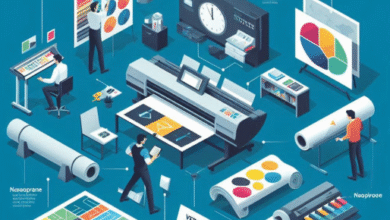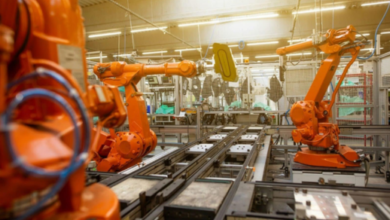
Key Takeaways
- Understanding the importance of sustainable fashion in the eyewear industry.
- Exploring materials and practices contributing to eco-friendly eyewear.
- Recognizing industry leaders and their role in promoting sustainability.
Eco-Friendly Materials in Eyewear Production
Today’s buyer values sustainable practices and supports brands that prioritize their impact on the environment. This significant change in consumer behavior impacts multiple industries, such as the eyewear sector, prompting well-known and new brands to reevaluate how they produce their products.
Due to increased environmental responsibility, there is a rise in using recycled metals and repurposed plastics in making eyewear and using more sustainable materials such as bamboo and bio-acetate. This shift to using materials that have less impact on the environment while still being durable ensures that consumers can be both stylish and environmentally conscious for a long time.
The Influence of Fashion Icons on Sustainable Eyewear
The fashion industry utilizes icons to establish trends and motivate consumers globally. The influence of celebrities and influencers promoting sustainable products is highly significant, especially regarding eyewear. Luxury sunglasses like Ray Ban, known for their classic styles, are now facing more inquiries about their environmental impact and the message they convey through their designs. These icons can help shift sustainable eyewear from a niche to a mainstream movement, sparking consumer interest and driving the fashion industry towards ethics. Their support gives sustainable eyewear brands exceptional visibility, blending sustainability with style.
The relationship between famous individuals and their decision to choose environmentally friendly eyewear has the power to create minor shifts in consumer actions. By embracing sustainable practices, fashion leaders are inspiring consumers to take action, leading the industry towards a more environmentally conscious state.
Corporate Responsibility and Consumer Influence
Corporate ethos must now align with heightened consumer expectations of ethical conduct, with responsibility extending into various aspects of business operations. An informed consumer base is no longer attracted merely by form and function but also by the methods employed in creating products. The evolution of corporate responsibility necessitates businesses to operate transparently, particularly concerning their environmental practices. This transparency is critical, fostering consumer trust and cementing brand reputation in a market increasingly leaning towards ethical consumption.
There is a clear signal within this dynamic that responsibility drives loyalty. Brands that invest in ecological awareness as part of their business model reap the benefits of a consumer base that actively engages with sustainability initiatives. As a result, these brands contribute to a healthier planet and enjoy a positive reception from their target markets, which acknowledge and appreciate their environmental efforts.
Technological Advancements in Sustainable Eyewear
Thanks to technology’s role in driving sustainable practices, the eyewear industry is brimming with innovation. For example, 3D printing is at the forefront of this revolution. It has emerged as a game-changer, allowing manufacturers to significantly reduce waste by only using the exact amount of material necessary to produce eyewear. This means less environmental waste and a step forward in ecological responsibility. With 3D printing, manufacturers can also cater to the modern customer’s desire for personalization without compromising their ecological values.
The influx of such technologies serves not only to foster the proliferation of environmentally friendly products but also to shift consumer behaviors that value individual expression. Customers can now enjoy tailor-made eyewear that reflects their unique style and fits perfectly, all while being produced in a way that is harmonious with environmental conservation.
The Importance of Certifications in Sustainability Claims
In a world where “green” claims are abundant, certifications stand as beacons of authenticity, assuring consumers about a product’s ecological attributes. Shoppers seeking to make purchases that align with their environmental values often look for certifications from reputable organizations to verify these claims. Well-known certifications like Eco-Cert or Green Seal offer evidence that a product has met specific sustainability criteria, from the sourcing of raw materials to the manufacturing processes.
Understanding the significance of these sustainability certifications is essential for consumers who prefer to make informed choices. These credentials can cut through the noise of the marketplace, clearly indicating which brands genuinely embody the principles of environmental responsibility and which are engaging in superficial claims. This level of discernment enables consumers to support genuinely sustainable eyewear options.
From Niche to Mainstream: The Future of Sustainable Eyewear
The transition from a niche market to a mainstream presence is a testament to consumer awareness and interest evolution. Sustainable eyewear has embraced this change, with a steadily growing chorus of consumers demanding products that reflect a commitment to the environment. This mainstreaming signifies a broader transformation within consumer priorities, highlighting a movement where fashion is increasingly seen through the lens of sustainability. Eyewear that champions eco-friendliness is poised to gain further ground, cemented by a public that is more knowledgeable and concerned about the source and lifecycle of their purchased products.
As the horizon of what constitutes fashion broadens to include ethical considerations, the eyewear industry continues to innovate, with a clear goal of integrating sustainability into every pair of glasses it produces. From high-fashion to everyday wear, sustainable eyewear promises to hold a permanent spot in the bright future of conscious consumerism, ensuring that style does not outweigh substance when it comes to preserving the environment.
How Consumers Can Support Sustainable Eyewear
The consumer plays a crucial role in fostering and spreading sustainable eyewear. Consumers can push the industry towards more environmentally friendly manufacturing by actively backing transparent brands and prioritizing sustainable practices. The emphasis on being eco-friendly in their operations can be driven by consumer demand, leading brands to change the fashion industry significantly. Consumers can lead the fashion industry towards a sustainable future through their buying choices, online support, and the backing of eco-friendly policies. As more people are willing to invest in environmentally friendly products, sustainable eyewear has the potential to become a popular consumer trend rather than just a conscious choice.




